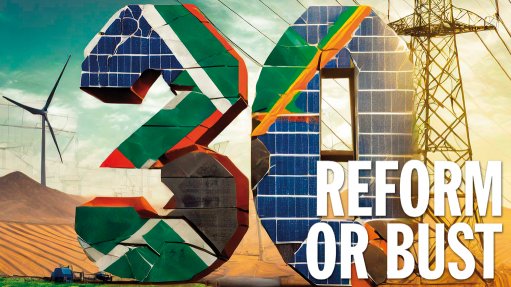Bill will not curb alcohol abuse in SA


ALCOHOL BAN There is no statistical relationship between per capita alcohol consumption and per capita advertisng expenditure on alcoholic beverages in South Africa
Economic consultation firm Econometrix completed a study on the Control of Marketing of Alcohol Beverages Bill and found contradictory evidence of the results of the country’s proposed alcohol advertising ban.
The study was conducted locally and internationally and was completed in February.
“The Bill is aimed at limiting alcohol abuse in the country,” says Econometrix MD Rob Jeffrey, adding that the study assessed the relationship between alcohol consumption and advertising.
“The study comprised two parts. The first part was a literature review. It was found that the evidence was contradictory and conflicting. There was no clear confirmation that a ban on advertising would limit alcohol abuse.
“The second part was a statistical study. This showed there was no statistical relationship between per capita alcohol consumption and per capita advertising expenditure on alcoholic beverages in South Africa. On the basis of that evidence, Econometrix believes that a ban on the advertising of alcohol will not have any impact on reducing South Africa’s alcohol consumption or, more particularly, alcohol abuse,” Jeffrey says.
He adds that there are a small number of people who abuse alcohol in the country and to potentially damage an entire industry while trying to target a small number of people will be missing the objective.
“In South Africa, 26% of all alcohol sold is unbranded or distributed through illegal outlets,” Jeffrey says, adding that most of the alcohol abuse in South Africa occurs in this sector of the market.
Jeffrey notes that alcohol abuse is a complex subject and that there are many social factors that come into play, adding that alcohol abuse in South Africa, generally, stems from peer pressure, family life, stress and psychological problems.
He points out that there are many different ways of transmitting a message and researching a particular product if it is of interest to one.
“Many people, particularly young people, get their information from social networking sites such as Twitter and Facebook. If you ban actual alcohol advertising, there are other means through which people will find out about a product,” he says.
Jeffrey stresses that implementing a ban on alcohol will not make a difference to the amount of alcohol consumed and costs associated with alcohol abuse in the country, thus rendering it an ineffective means of dealing with the problem.
“It is far better to have a targeted campaign to deal with the country’s alcohol abuse problem. One must look at alcohol education programmes and increasing the tax on alcohol, which could, however, lead to more serious problems.
For example, if the price of alcohol increases too much, it will drive people even further into the illicit market and it could actually lead to an increase in alcohol abuse as a result of the legislation,” he notes.
Jeffrey explains that one of the major ramifications of the Control of Marketing of Alcohol Beverages Bill is the impact it will have on jobs in the advertising industry.
“About 12 000 people could potentially lose their jobs and, when you take into account that there is a dependency ratio of 4:1, 48 000 people will have a lower income,” he says, adding that South Africa’s gross domestic product (GDP) could be affected by R7-billion.
“The ban will also start affecting the eco- nomy related to the media, as it will suffer a loss of R1.4-billion. The South African Broadcasting Corporation will lose R541-million, South Africa’s satellite network, DStv, will lose R440-million and local channel e.tv will lose R300-million,” Jeffrey explains.
He adds that the impact on the sponsorship industry will be about R300-million.
“Sporting events will be difficult to organise without sponsorship deals, but cultural acti- vities, such as music and the arts, which receive sponsorships in various ways, will also be affected negatively.
“The ban on alcohol advertising will also affect development and transformation. If there is no sponsorship, good sportspeople or musicians will not have an opportunity to develop their talents,” he concludes.
Comments
Press Office
Announcements
What's On
Subscribe to improve your user experience...
Option 1 (equivalent of R125 a month):
Receive a weekly copy of Creamer Media's Engineering News & Mining Weekly magazine
(print copy for those in South Africa and e-magazine for those outside of South Africa)
Receive daily email newsletters
Access to full search results
Access archive of magazine back copies
Access to Projects in Progress
Access to ONE Research Report of your choice in PDF format
Option 2 (equivalent of R375 a month):
All benefits from Option 1
PLUS
Access to Creamer Media's Research Channel Africa for ALL Research Reports, in PDF format, on various industrial and mining sectors
including Electricity; Water; Energy Transition; Hydrogen; Roads, Rail and Ports; Coal; Gold; Platinum; Battery Metals; etc.
Already a subscriber?
Forgotten your password?
Receive weekly copy of Creamer Media's Engineering News & Mining Weekly magazine (print copy for those in South Africa and e-magazine for those outside of South Africa)
➕
Recieve daily email newsletters
➕
Access to full search results
➕
Access archive of magazine back copies
➕
Access to Projects in Progress
➕
Access to ONE Research Report of your choice in PDF format
RESEARCH CHANNEL AFRICA
R4500 (equivalent of R375 a month)
SUBSCRIBEAll benefits from Option 1
➕
Access to Creamer Media's Research Channel Africa for ALL Research Reports on various industrial and mining sectors, in PDF format, including on:
Electricity
➕
Water
➕
Energy Transition
➕
Hydrogen
➕
Roads, Rail and Ports
➕
Coal
➕
Gold
➕
Platinum
➕
Battery Metals
➕
etc.
Receive all benefits from Option 1 or Option 2 delivered to numerous people at your company
➕
Multiple User names and Passwords for simultaneous log-ins
➕
Intranet integration access to all in your organisation



















